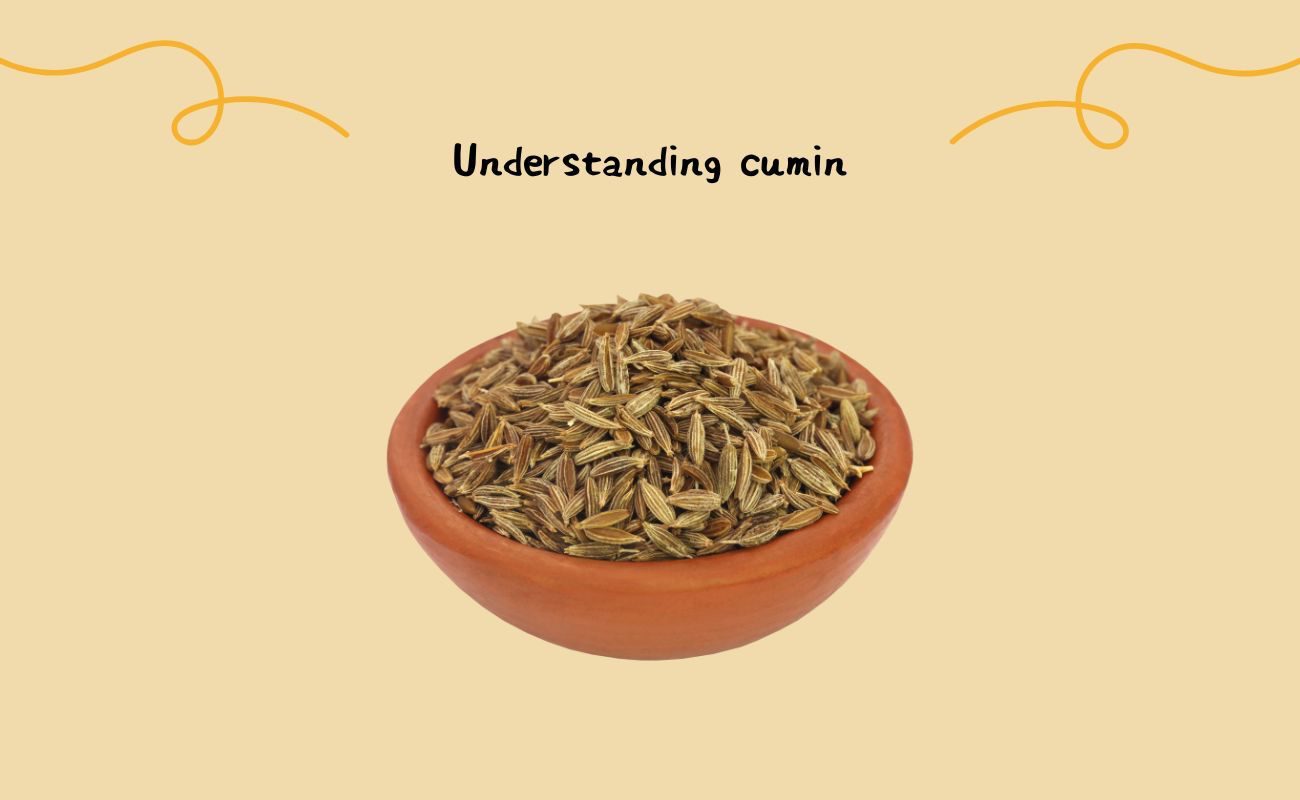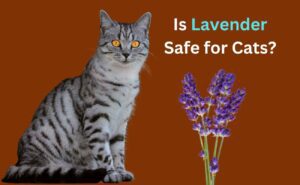Understanding Cumin, Can Cats Eat Cumin?
Cumin is a spice derived from the seeds of the Cuminum cyminum plant, belonging to the parsley family. It is commonly used in cooking to add flavor and aroma to dishes, particularly in cuisines such as Indian, Middle Eastern, and Mexican. Cumin has a warm, earthy taste and is often used in both ground and whole seed form.
Cumin is a popular spice known for its distinctive flavor and aroma in various cuisines worldwide. As a cat owner, you may wonder whether it’s safe to share foods seasoned with cumin with your feline friend. In this comprehensive guide, we’ll delve into the question: Can cats eat cumin? We’ll explore the potential risks and benefits of cumin for cats and provide essential insights into feline nutrition and safety considerations.
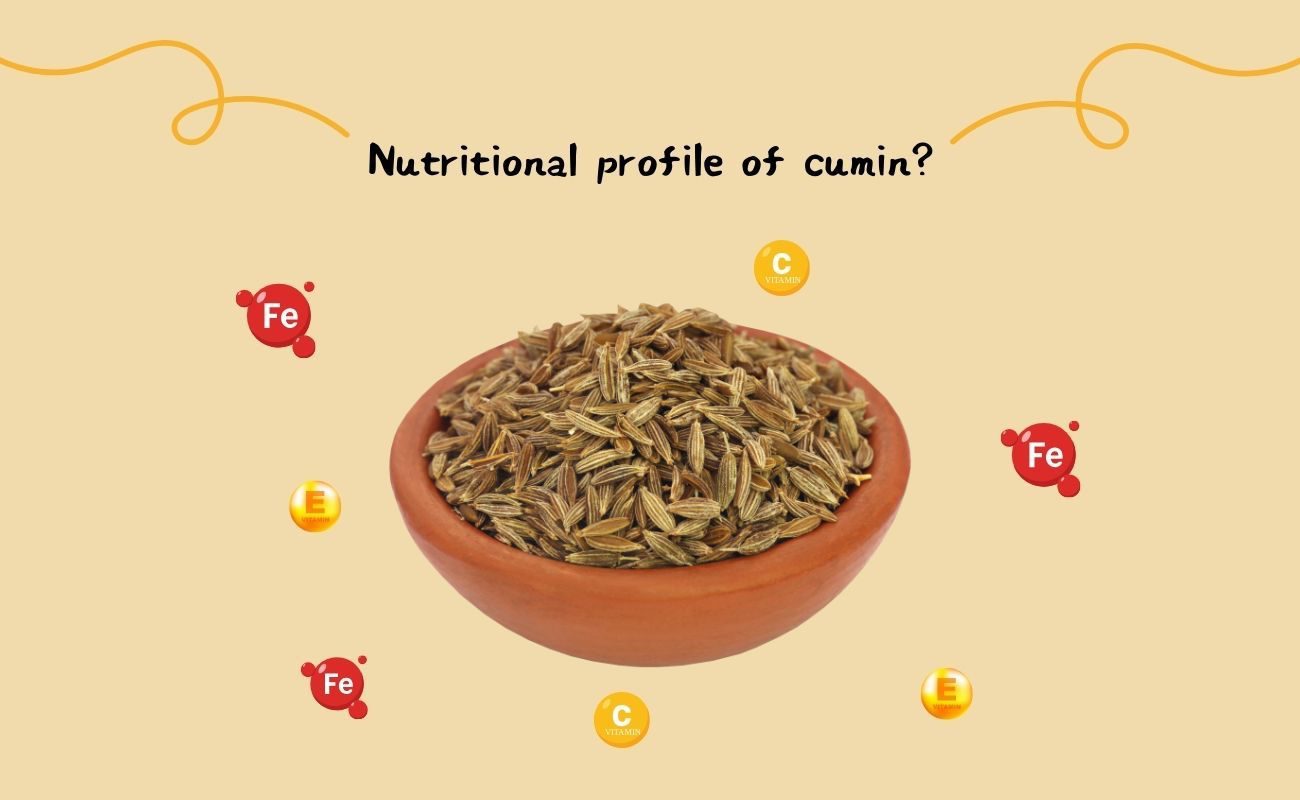
Nutritional Profile of Cumin
Cumin is relatively low in calories but rich in essential nutrients such as iron, manganese, and antioxidants. It also contains small amounts of vitamins C and E, as well as dietary fiber. While these nutrients may offer some health benefits for humans, it’s essential to consider whether they are beneficial or harmful to cats.
Here’s a table detailing the nutritional profile of cumin per 100 grams
| Nutrient | Amount Per 100g |
|---|---|
| Calories | 375 kcal |
| Protein | 17.81 g |
| Fat | 22.27 g |
| Saturated Fat | 1.535 g |
| Monounsaturated Fat | 14.055 g |
| Polyunsaturated Fat | 3.275 g |
| Carbohydrates | 44.24 g |
| Fiber | 10.5 g |
| Sugars | 2.25 g |
| Calcium | 931 mg |
| Iron | 66.36 mg |
| Magnesium | 366 mg |
| Phosphorus | 499 mg |
| Potassium | 1788 mg |
| Sodium | 168 mg |
| Zinc | 4.8 mg |
Please note that these values are approximate and can vary depending on factors such as growing conditions and processing methods.
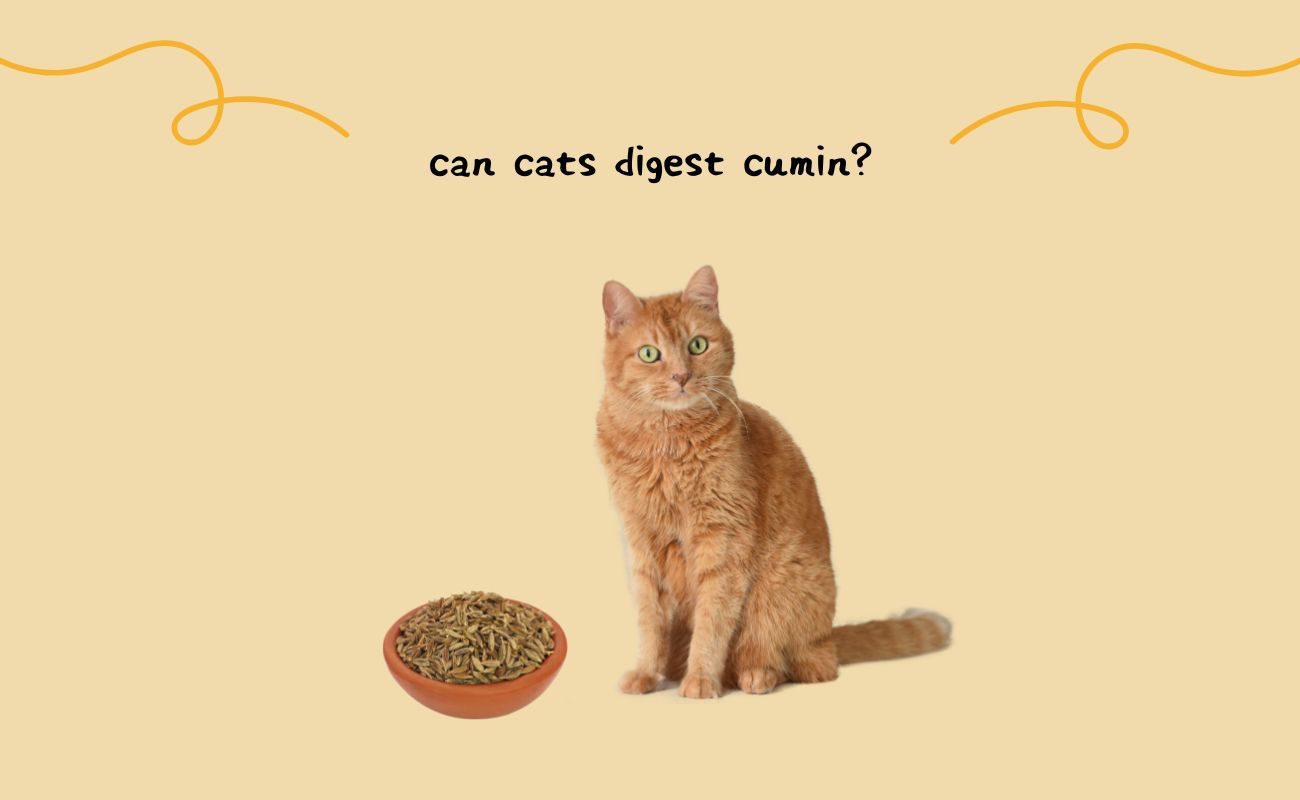
Can Cats Digest Cumin?
While cats are obligate carnivores and primarily require animal-based proteins in their diet, they can tolerate small amounts of plant-based foods in moderation. However, cats may not be able to digest certain spices, including cumin, as effectively as humans. The strong flavors and aromatic compounds in cumin may be overwhelming for a cat’s sensitive palate and digestive system.
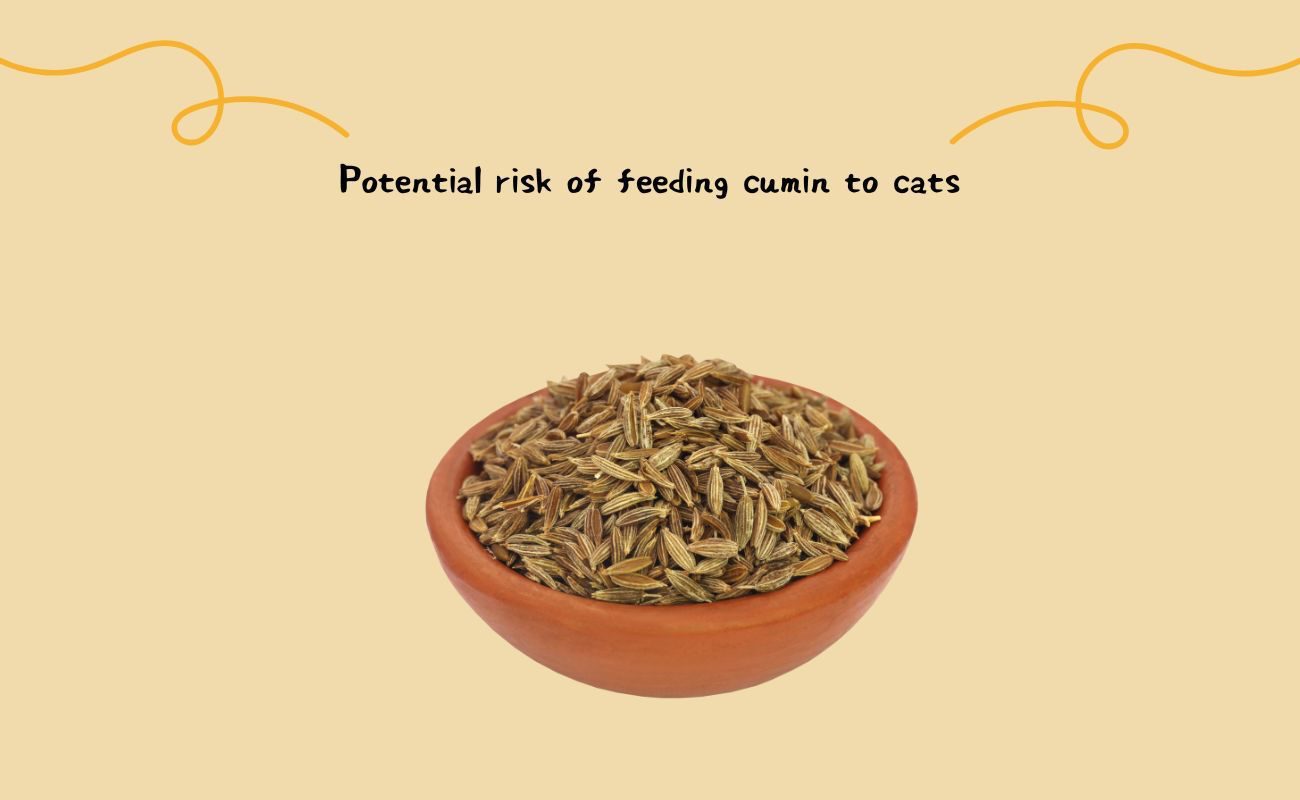
Potential Risks of Feeding Cumin to Cats
Feeding cumin to cats in large quantities may lead to gastrointestinal upset, including
- vomiting
- diarrhea
- abdominal discomfort
Additionally, some cats may be allergic to cumin or experience adverse reactions to its potent compounds. It’s essential to monitor your cat’s reaction closely if you decide to offer them foods seasoned with cumin.
Potential Benefits of Cumin for Cats
While there is limited scientific research on the specific effects of cumin on cats, some anecdotal evidence suggests that cumin may have certain health benefits for felines. For example, cumin is believed to possess anti-inflammatory and antioxidant properties, which may help support overall health and well-being in cats.
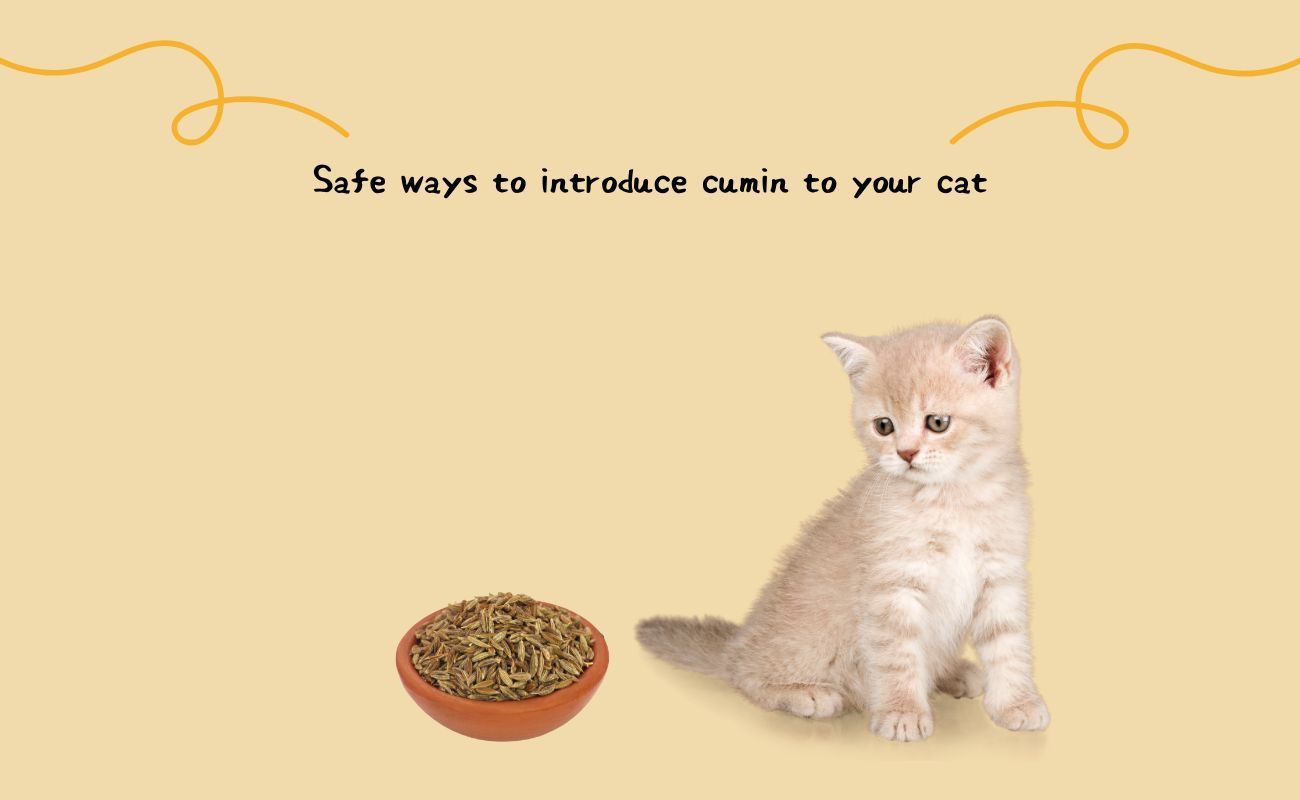
Safe Ways to Introduce Cumin to Your Cat
If you’re considering incorporating cumin into your cat’s diet, it’s essential to do so gradually and in small amounts. Start by offering a tiny pinch of ground cumin mixed with your cat’s regular food and observe their reaction. If your cat shows any signs of digestive upset or adverse reactions, discontinue the cumin immediately.
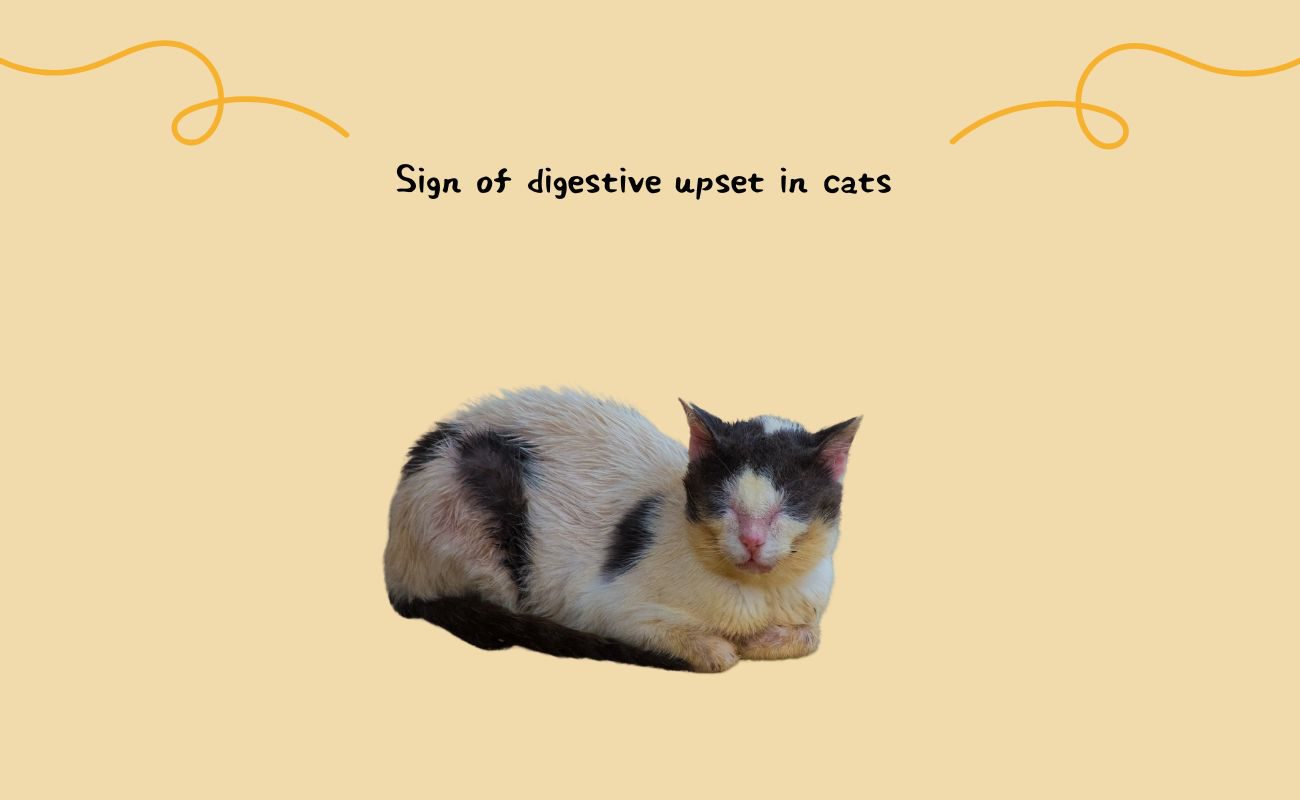
Signs of Digestive Upset in Cats
Common signs of digestive upset in cats include
- vomiting
- diarrhea
- abdominal pain
- lethargy
- decreased appetite
and changes in litter box habits. If your cat experiences any of these symptoms after consuming cumin or cumin-seasoned foods, consult with your veterinarian for guidance.
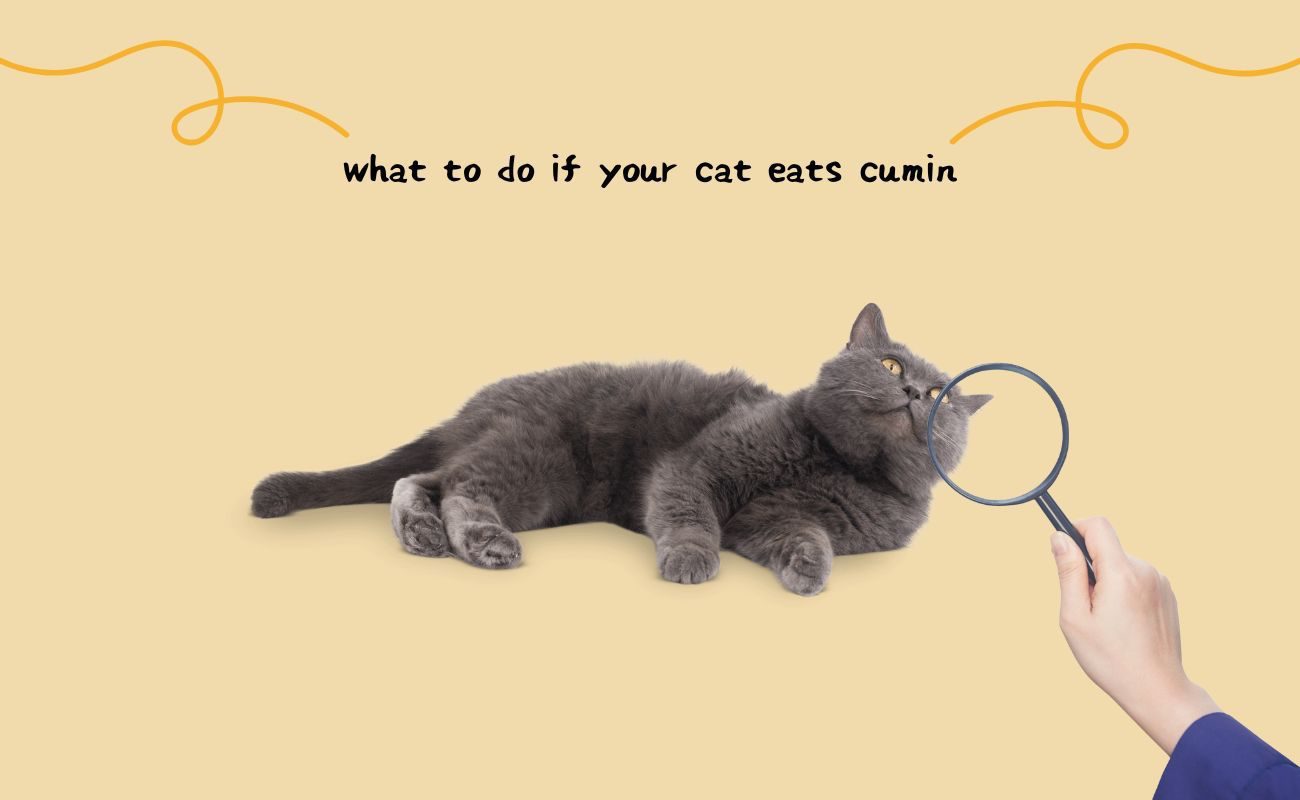
What to Do If Your Cat Eats Cumin
If your cat accidentally ingests cumin or cumin-seasoned foods and experiences any adverse reactions, monitor them closely and contact your veterinarian for advice. In most cases, mild cases of digestive upset can be managed at home with supportive care, such as providing plenty of fresh water and a bland diet.
Summary
Can Cats Eat Cumin?
Cats can consume cumin in small amounts without significant harm, but it’s not recommended as a regular part of their diet. While cumin isn’t toxic to cats, it may cause digestive upset or allergic reactions in some individuals. It’s best to avoid feeding cumin to your cat and stick to a diet specifically formulated for their nutritional needs. Always consult with your veterinarian before introducing any new food or spice into your cat’s diet.


